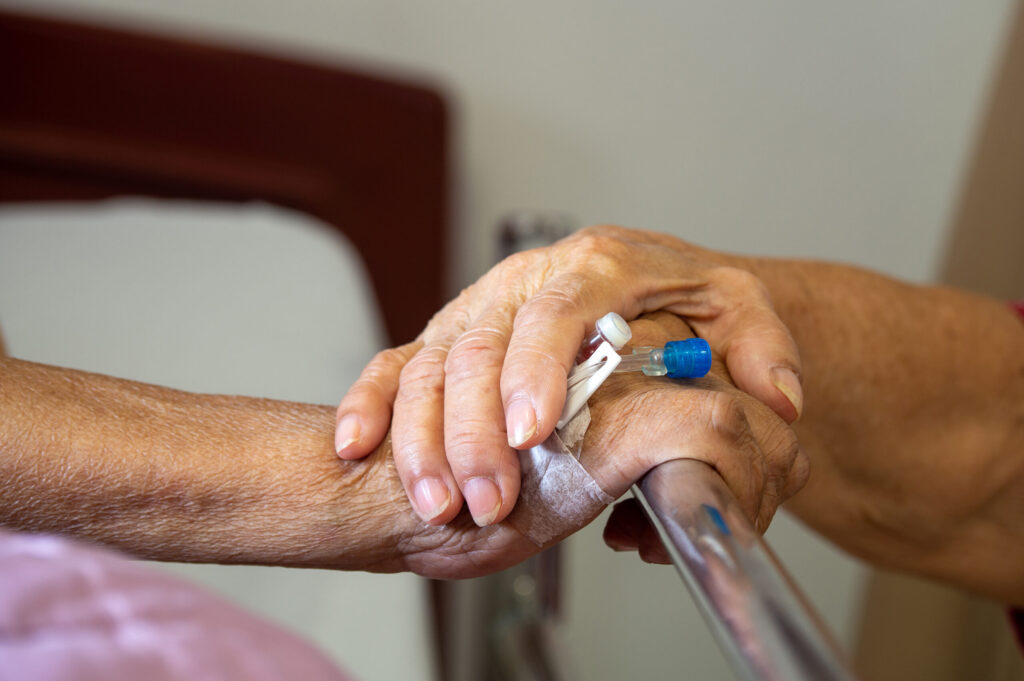Congress is currently considering major cuts to Medicaid and other programs. Changes to Medicaid, which provides health insurance for 1 in 5 Americans and 400,000 Mainers, would have obvious impacts on beneficiaries. But for everyone else? It still matters. Here’s why:
1. Your hospitals care about Medicaid — a lot
- Medicaid covers about one in five discharges and nearly half of all births in rural hospitals. In Maine, Medicaid covered 48% of rural births and 39% of all births in 2023. Rural health care providers and hospitals are already financially stretched. Their margins are thin, and risks of closures are real, furthering gaps in accessible care and making rural Mainers drive farther for basic medical care like birth centers. Cuts to Medicaid could result in lower reimbursement levels or more uninsured care, exacerbating existing financial challenges. For Maine’s Northern Light hospital system, MaineCare revenue ranges from 12% to 64%.
- Medicaid recipients generally do not have the option of affordable private insurance as an alternative to Medicaid (for example, many work in jobs that do not offer health insurance). The alternative to Medicaid is often not having health insurance at all. For hospitals, care for uninsured people can be costly as they are less likely to have sought preventative care or care for chronic health conditions and end up in hospitals when things are serious. Expanded Medicaid coverage has reduced the rates of uninsured people and uncompensated care costs for hospitals. Between 2018 and 2023, charity care in Maine’s hospitals fell from $234 million to $133 million.
2. Your loved ones may need Medicaid one day (or you might)
- Medicaid is a major provider of health care when people are vulnerable. It covers 2 in 5 children, 2 in 5 non-elderly adults with a disability, 1 in 4 people with substance use disorder or mental illness, and 3 in 5 nursing facility residents.
- Medicaid is a major source of revenue for nursing home and long-term care services and supports and a critical support for a huge number of older adults. Medicare — America’s health care program for older adults over age 65 — does not cover long-term health care needs, which can be expensive. For many, Medicaid steps in to cover the cost of care when they have exhausted other insurances and their personal assets.
- Medicaid supports many families with children who have disabilities and special health care needs. In Maine, about half of all children with special needs get health insurance through Medicaid or the Children’s Health Insurance Program, which is an expansion of Medicaid just for children.
- Maine offers Medicaid coverage to help people access the full range of services to address substance use disorders. We cannot predict who might need help, but supporting recovery programs benefits the people who need them and our entire communities.
3. Health care dollars from DC let Maine spend other dollars on our communities
- Maine’s state budget sends dollars to Maine’s towns and cities to fund road construction, housing, child care services, public schools, public safety, and more.
- Medicaid cuts being considered would mean hundreds of millions less in our state budget, potentially forcing hard choices in Augusta on whether to cut access to health care through Medicaid or cut other investments in our communities. State lawmakers can also raise revenues through taxes on the wealthy at the state level, but current efforts are already focused on filling state-level gaps and will not easily fill giant new ones.
- A major cut in Medicaid would almost certainly mean Maine would have to cut benefits, reduce payments to health care providers, or remove people from the program entirely.
4. Are you sure you’re not on Medicaid?
Maine, like many states, calls Medicaid something else: MaineCare. 400,000 Mainers have health insurance through Medicaid, but their MaineCare cards don’t have “Medicaid” anywhere on them. Many Americans do not know they are on Medicaid and in some states, though not in Maine, the programs are run by a private insurance company, adding further confusion.




